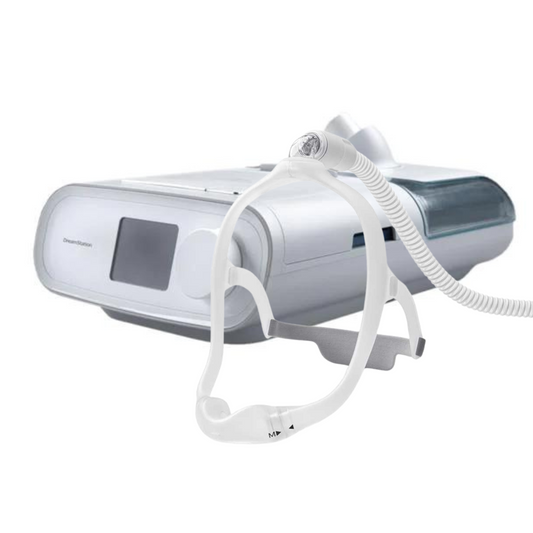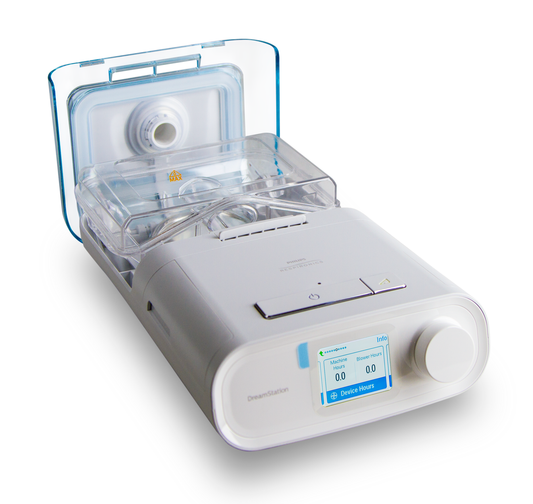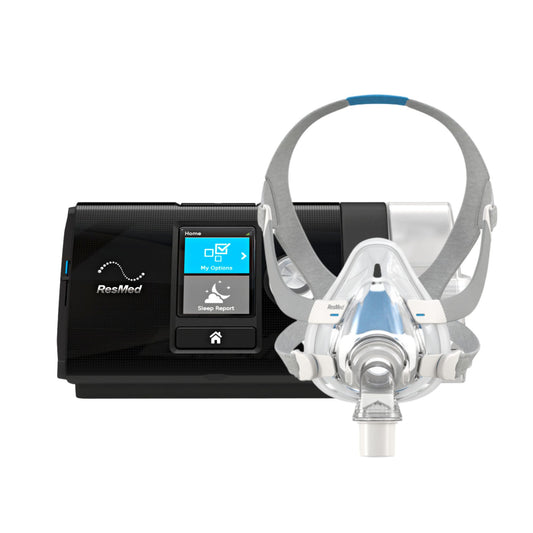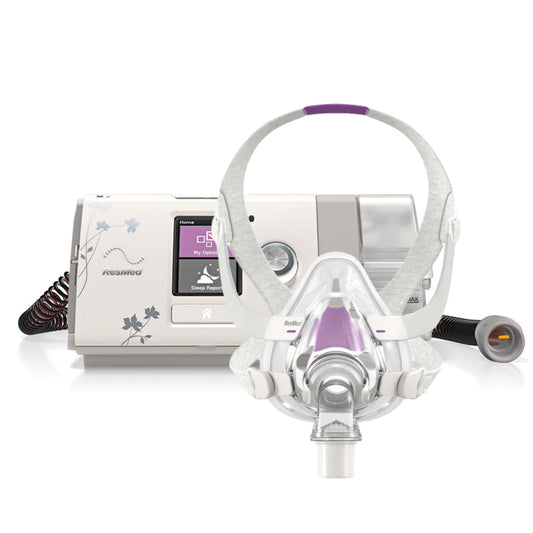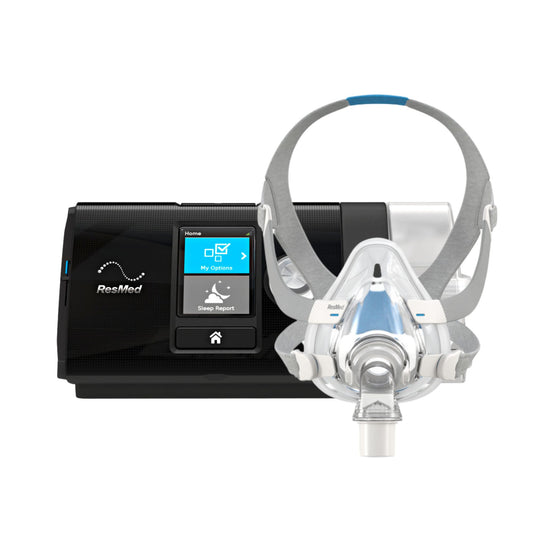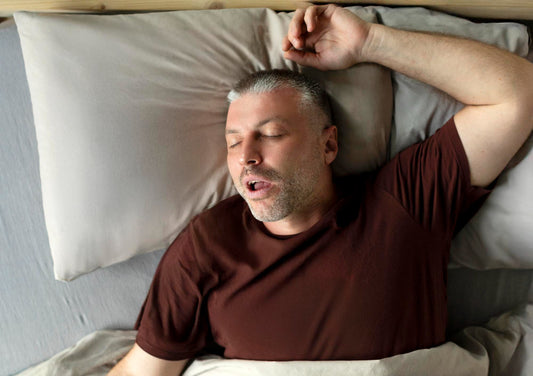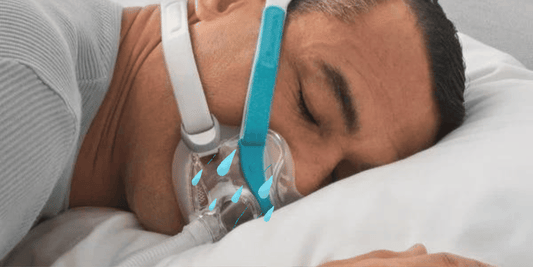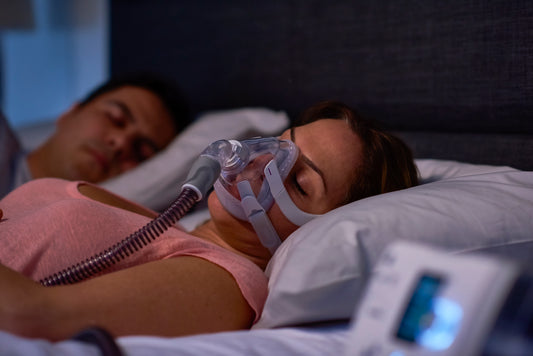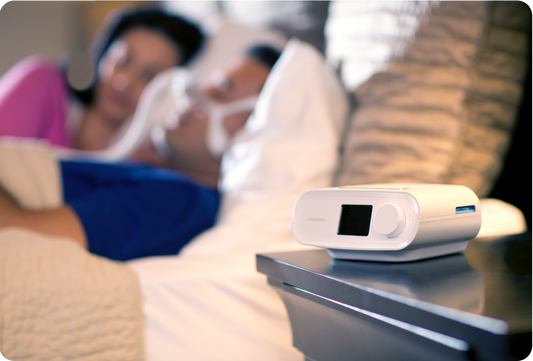Sleep disorders such as obstructive sleep apnoea (OSA) and insomnia can make a person feel less energetic, foggy, and grumpy. The continuing loss of sleep affects a person’s health, memory, looks, ability to lose weight and sex life. The consequences of sleep loss are not something to dismiss as the effects can be serious.
Sleep deprivation causes accidents. Over 20% of vehicular accidents in Australia factored fatigue. In this context, fatigue-related accidents involved shift workers, young drivers, and drivers with sleep disorders. The 1986 nuclear meltdown in Chernobyl, the Exxon Valdez oil spill, and the nuclear accident at Three Mile Island in 1979 were rooted in sleep deprivation. Poor quality of sleep and sleep loss lead to injuries and accidents in the workplace too.
Sleep loss can lead to serious health complications. Chronic sleep loss and sleep disorders can increase the risk of heart diseases including heart attack and heart failure, high blood pressure, diabetes, stroke, depression, and metabolic syndrome.
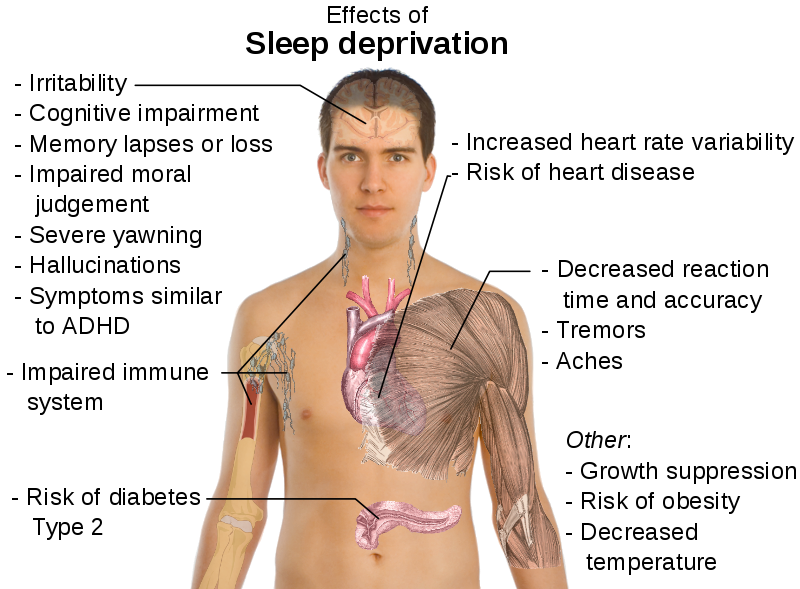
Lack of sleep impairs cognitive function. Sleep is a much needed factor in learning and thinking. The lack of sleep affects cognitive processes as it impairs concentration, alertness, attention, problem-solving skills, and reasoning power. During deep sleep, the different sleep cycles play crucial parts in merging and consolidating thoughts and memories. Lack of sleep will affect this process.
Sex drive is affected by lack of sleep. Studies indicate that less interest in sex and general lower libidos are experienced by men and women who are sleep deprived. This is caused by decreased energy, increased tension, and sleepiness. Men with untreated sleep apnoea are likely to suffer a type of respiratory problem and this may also contribute to lack of sleep. A study published in the Journal of Clinical Endocrinology & Metabolism (2002) implies that most men with untreated sleep apnoea have low testosterone levels.
Depression may be caused by lack of sleep. Chronic sleep deprivation may contribute to symptoms of depression. A 2005 U.S. poll indicated that people with anxiety or depression disorder generally sleep less than six hours a night with insomnia strongly linked to depression. A study of 10,000 people with insomnia indicated that they were five times more likely to develop depression. Insomnia “feeds” depression as depression “feeds” insomnia.
Sleep deprived people are more forgetful. The brain event called sharp wave ripples aptly consolidates one’s memory while he sleeps. The same ripples convey learned information to the neocortex of the brain from the hippocampus. The neocortex is where long-term memories are stored, and lack of sleep deters the wave ripples from occurring.
Lack of Sleep leads to lacklustre skin. Puffy skin and puffy eyes are noticeable in a person who missed a few good nights’ sleep. Imagine what chronic sleep loss can do. Continuing lack of sleep causes one’s skin to age rapidly. It contributes to the development of facial lines and dark circles under the eyes. Why is this? It is because when one does not get enough sleep, the stress hormone called cortisol is released and in excess amount, this hormone breaks down collagen.
Lack of sleep causes the body to release the very important human growth hormone. For the younger ones, this is the hormone that promotes growth. As one age, this hormone helps increase muscle mass, strengthen bones, and thicken skin. Growth hormone also helps to repair body tissues.
Find a clinic or call us now for a consultation 1300 750 006.
